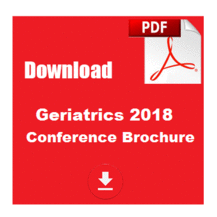
Alex W Costley
City University of New York, USA
Title: Aging and food insecurity: Older adults and reduced access to food in a challenging environment
Biography
Biography: Alex W Costley
Abstract
Statement of Problem: Reduced intake of healthy food is a growing public health problem for all ages in the US, but older adults often have less access to food due to several social and behavioral factors. In communities lacking full-service supermarkets or (food deserts), more research is needed to understand the factors that make older adults even more vulnerable to food insecurity.
Methodology & Theoretical Approach: In a larger community-based survey research project on access to food and nutrition (N=422), data were coded in SPSS 22 by postal (zip) code to identify residents in a documented food desert (n =297) and by age, over 65 (119 or 40%) and 18-64 (178 or 60%) to explore significant differences (p<0.05) in income, behavior, and social barriers using chi-square (X2) analyses.
Findings: With similar distance to supermarkets (p=0.914), the majority of younger and older adults (84% and 73%) said they could walk to a large supermarket, if needed (p=0.121), but older adults had more physical limitations (p=0.000) for getting food back home. Income distributions were similar (p=0.234), but older-adults appeared less likely to eat fast foods (p=0.04), but not more likely to eat fresh vegetables daily (p=0.060). However, older adults were more likely to live alone (p=0.007) and have difficulties with activities of daily living (ADLs) and instrumental activities of daily living (IADLs) (p<0.013) affecting daily function.
Conclusion & Significance: Even in more challenging environments (i.e. food deserts), the data suggest that distance to supermarkets alone is not the biggest barrier. Older adults, however, appear to face other social and physical limitations that require additional resources beyond existing nutritional programs and municipal plans to increase retail food infrastructure.

